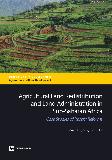NOT JUST DEFENDING; ADVOCATING FOR LAW IN MYANMAR
...Through research on Myanmar, we argue that in authoritarian settings where legality has drastically declined, the starting point for cause lawyering lies in advocacy for law itself, in advocating for the regular application of law’s rules.






